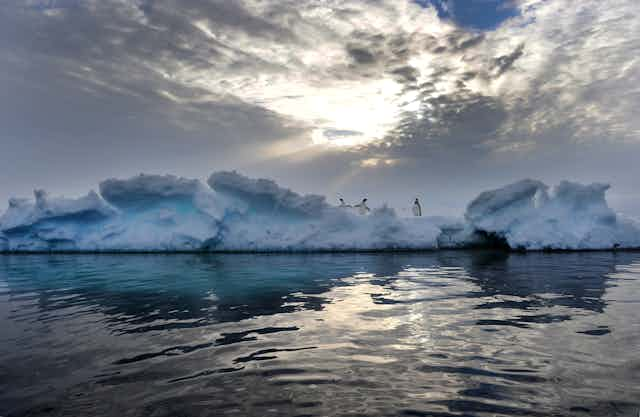The annual meeting of the Commission for the Conservation of Antarctic Marine Living Resources (CCAMLR) wound up in Hobart on Thursday last week without declaring a system of marine protected areas (MPAs) in the Antarctic. But this shouldn’t be seen as a defeat for marine protection.
The three proposals on the table at the Commission were:
a pre-emptive move to protect areas in the Antarctic peninsula region when ice shelves collapse
-
an MPA in the Ross Sea region of Antarctica
a proposal from Australia, France and the European Community for a series of MPAs in east Antarctica.
During the meeting the USA and New Zealand merged their competing proposals for an MPA in the Ross Sea.
NGO groups and some CCAMLR members expressed their extreme disappointment that the Commission had not met the deadline it had set itself in 2009 to establish a representative system of protected areas in the Convention area by 2012.
A failure, or a brighter future?
The Commission decided, for only the second time in its history, to hold a Special Meeting. This Special Meeting, to be held in Germany in July 2013, will further consider the protected area proposals for East Antarctica and the Ross Sea. It will be preceded by a special meeting of CCAMLR’s Scientific Committee. The last time the CCAMLR Commission held a Special Meeting was 1986 to discuss the application from Brazil to become a member.
CCAMLR operates by consensus. Ultimately all parties must agree to a decision, or at least choose to not disagree. Consensus decision making (a hallmark of the Antarctic Treaty System) leads to strong agreement and support for decisions that are made. But it can also mean that decisions can take a long time as doubts, criticisms and opposition are addressed.
In the case of the remaining protected area proposals (the Antarctic peninsula proposal will not be considered in the Special Meeting in 2013), enough doubt existed in some delegations that consensus could not be reached. But there was not enough opposition to scuttle the call for a Special Meeting.
The stakes will be high in Germany. All parties will have had many months to consider the MPA proposals, having already considered the science behind them in 2011. The fact that these MPAs will be the only substantive issue to be considered also provides added focus on reaching a decision in July 2013.
Conservation versus exploitation: MPAs in the Antarctic
Unlike other international bodies that regulate fishing and harvesting of marine living resources (usually referred to as Regional Fisheries Management Organisations or RFMOs), the CCAMLR Commission’s responsibility under its convention is, first and foremost, the conservation of the entire Antarctic marine ecosystem. The purpose of the Convention is “…the conservation of Antarctic marine living resources…”.
Fisheries are only part of its remit. Any harvesting or related activity in the Convention area must ensure the “…maintenance of the ecological relationships between harvested, dependent and related populations of Antarctic marine living resources…”.
Traditionally this objective has been achieved in CCAMLR through ecosystem-based management of fisheries. The precautionary approach means the setting of very conservative catch limits and other measures such as “open” and “closed” areas (to fishing).
Embracing MPAs takes CCAMLR’s history of breaking new ground in marine conservation one step further. It would establish a new benchmark for global ocean management – while at the same time allowing well-regulated fisheries to proceed.
In taking this step the members of the CCAMLR Commission would be not only fulfilling the objectives of the CCAMLR convention, but also meeting obligations they have made elsewhere. Almost all members of the CCAMLR Commission are signatories to the Antarctic Treaty and its Protocol on Environmental Protection (Madrid Protocol). The objective of the Madrid Protocol is “…the comprehensive protection of the Antarctic environment and dependent and associated ecosystems…”. Establishing a comprehensive system of MPAs would be an important component of this protection.
Between now and the July Special Meeting, there will need to be concerted scientific, political and diplomatic effort brought to bear to ensure these important MPA proposals are adopted. Success at this meeting will be welcomed by all committed to the principles of the Antarctic Treaty System. Failure could be seen as the start of overturning CCAMLR’s long tradition of precautionary management.

